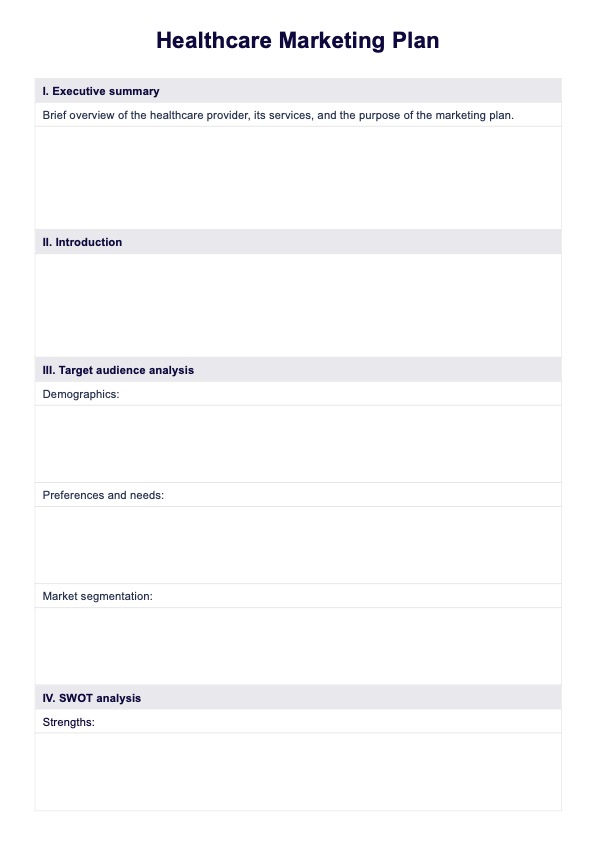Healthcare professionals can effectively market their services by identifying their target audience, creating compelling content, utilizing digital channels, networking within the community, and maintaining a strong online presence.

Healthcare Marketing Plan
Download Carepatron's comprehensive Healthcare Marketing Plan PDF, which helps create a successful strategy that drives patient engagement, trust, and growth for your organization.
Healthcare Marketing Plan Template
Commonly asked questions
Essential digital marketing tools for healthcare marketers include a user-friendly website, search engine optimization (SEO), social media platforms, email marketing software, and analytics tools for tracking performance.
A marketing plan in healthcare is a strategic roadmap that outlines objectives, target audience analysis, marketing strategies, budget allocation, implementation timeline, and methods for evaluating success.
EHR and practice management software
Get started for free
*No credit card required
Free
$0/usd
Unlimited clients
Telehealth
1GB of storage
Client portal text
Automated billing and online payments











